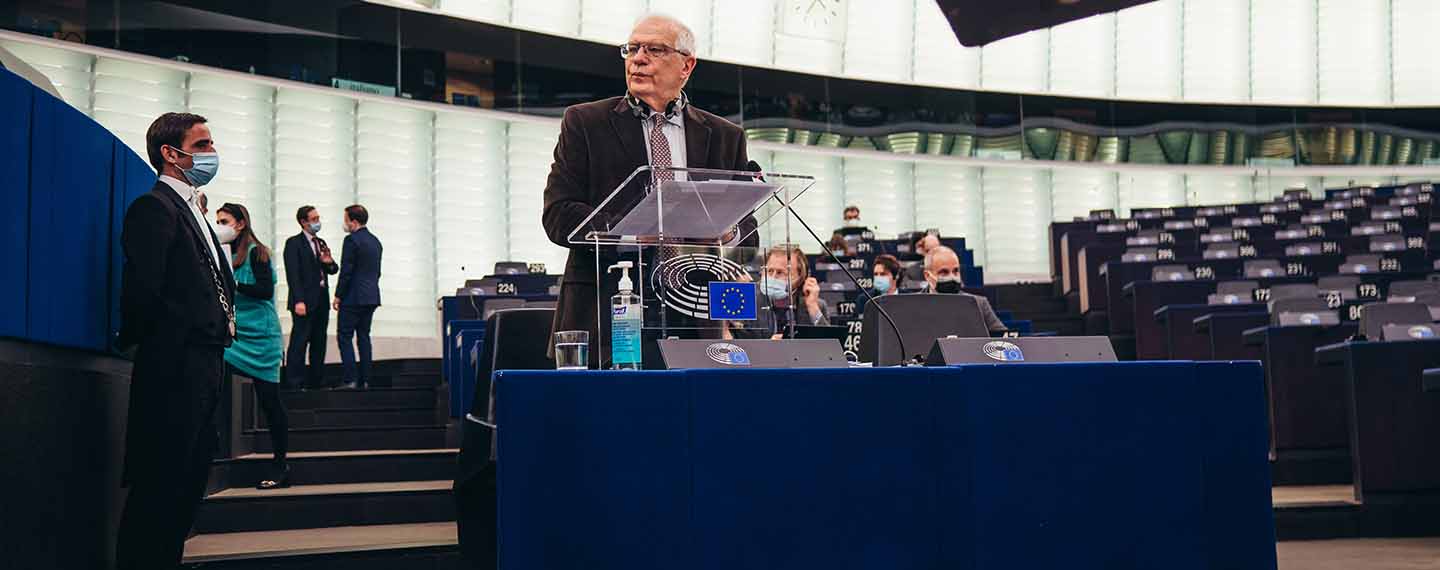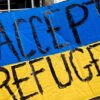“This is a moment in which geopolitical Europe is being born”, stated the High Representative, Josep Borrell, at the European Parliament about Russia’s invasion of Ukraine. Beyond new hard powers, the EU’s external action and development cooperation is evolving rapidly, not always sequenced in time, but pushed by external shocks.
Episode 1: The European way
The COVID-19 pandemic has heavily reaffirmed the notion of global threats and highlighted the relevance of the 2030 Agenda on leaving no one behind, as well as the need for rules-based multilateralism. Team Europe emerges as a joint reaction by the EU, its Member States and European financial institutions to ensure universal access to safe and effective COVID-19 vaccines as part of a lasting solution to the pandemic. Influenced by revolving Euro-Atlantic relations, the approach fits into the ambition of a geopolitical Commission that builds on international partnerships. Therefore, Team Europe has evolved into operational innovations in the form of “Team Europe Initiatives”, which aim at scaling and focusing the joint capacities of the EU, its Member States and European financial institutions for increased impact and visibility, deriving into specific initiatives such as Global Gateway or the Digital for Development Hub. Beyond the questioning about real new commitments (“It’s not the money, it’s the strategy”), Team Europe has certainly already reached substantial progress in terms of branding (grants vs loans) and joint narratives.
Competing with investment of other actors in the world, the EU shall focus on what it stands for. A value based external action with rule of law, democratic governance, social cohesion and regional integration at its heart, requires applying a policy first approach, not only promoting the enabling environment for sustainable investment, but unfolding the normative power of the EU through structured and permanent policy dialogues with the partner countries, that guide the whole toolbox of EU external action to sustainable and inclusive development. Rooted in strong European public policy models, public sector expertise is key for creating mutual trust and promoting European values, interests, and standards. Despite the horrors of war, Ukraine stands for this.
Episode 2: An emerging European cooperation system of shared competencies
A second dimension of the Team Europe trinity is the opportunity for an emerging European cooperation system of shared competencies or European architecture for development. The Team Europe initiatives already border the edge of complexity of the competencies between the European Commission and the Council and they have the potential of building the backbone for a “working better together” agenda that establishes structured ways of cooperation between the Commission services, Member State organizations and European financial institutions. The Practitioners’ Network jointly with European Development Finance Institutions and the Enhanced Partnership (European Financial Architecture for Development) have a key role to play in defining this system in an inclusive manner. At the same time, Team Europe Initiatives imply the mobilization of other actors, including line Ministries and regional and local authorities in the public sector of the EU Member States, as well as civil society organizations and the private sector. Inclusiveness is at the heart of Team Europe and part of the debate on how to engage and structure an emerging development system. This also implies an open discussion about the role of indirect management as a method of implementation of the EU budget beyond external action instruments and the participation in delegated cooperation as a development effectiveness tool and modality of the European Consensus on Development.
Episode 3: The EU Member State dimension
Team Europe shapes EU Member States’ teams and even impacts the organizational set-up of their international and development cooperation systems. Member States’ development organizations shall mobilize the whole range of capacities for Team Europe, but do they need to channel them? How shall EU Member States structure the relationship with geopolitical external action services of the European Commission? What is the role of the private sector, civil society, line Ministries, decentralized cooperation or EU Member State-based international organizations in the EU’s and its Member States’ cooperation systems? What is the role for EU Member State development organizations in a more integrated EU cooperation system?
To put Team Europe into Antonio Machado’s words: “There is no road, the road is made by walking”.
Image: Josep Borrell Fontelles, at the podium in the European Parliament (Strasbourg, France). Photo: European Union, 2022



